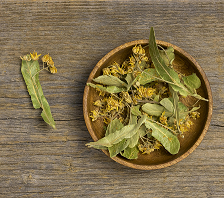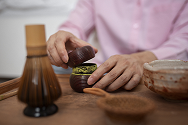INTRODUCTION
Dhatu is a Sanskrit term that refers to the seven basic tissues or substances that make up the body in Ayurvedic medicine. The seven Dhatus are rasa (plasma), Rakta (blood), Mamsa (muscle), Meda (fat), Asthi (bone), Majja (bone marrow), and Shukra (reproductive tissue). Balancing the Dhatus is crucial for maintaining good health, according to Ayurvedic principles.
- Rasa, the first Dhatu, is the plasma or fluid component of the body. It is responsible for carrying nutrients and waste products throughout the body and is closely linked to digestion and the metabolism of the body.
- Rakta, the second Dhatu, is the blood. It provides oxygen and nutrients to the body and helps to remove waste products. A healthy balance of Rakta is essential for proper circulation and overall health.
- Mamsa, the third Dhatu, is the muscle tissue. It provides support and structure to the body and is crucial for movement and physical strength.se
- Meda, the fourth Dhatu, is the fat tissue. It provides energy and insulation to the body and helps to regulate body temperature.
- Asthi, the fifth Dhatu, is the bone tissue. It provides structure and support to the body and is crucial for maintaining physical stability.
- Majja, the sixth Dhatu, is the bone marrow. It is responsible for producing blood cells and is closely linked to the immune system.
- Shukra, the seventh Dhatu, is the reproductive tissue. It is responsible for producing sperm and eggs and is closely linked to fertility and overall reproductive health.
- Balancing the Dhatus requires a holistic approach to health that includes proper diet, exercise, stress management, and a balanced lifestyle. In this article, we are going to discuss the importance of these Dhatus and how a person can balance the seven Dhatus in their body.
Importance of the Seven Dhatus in Ayurveda

The seven Dhatus in Ayurveda are the building blocks of the body and play a crucial role in maintaining overall health and well-being. They represent different tissues and bodily fluids, each with its own unique function and importance. A healthy balance of the seven Dhatus is essential for maintaining physical and mental health, preventing disease, and promoting longevity. By understanding the importance of each Dhatu, individuals can work to maintain balance in their bodies and achieve optimal health and wellness.
Here is the importance of the seven Dhatus:
- Rasa Dhatu: Rasa Dhatu is the plasma or nutrient fluid that nourishes all the cells, tissues, and organs in the body. It is the first of the seven dhatus and plays a pivotal role in maintaining hydration, nutrient distribution, and immune response. A healthy Rasa Dhatu promotes glowing skin, a strong immune system, and a balanced emotional state. Weak or imbalanced Rasa Dhatu can lead to dryness, fatigue, low immunity, and emotional disturbances like anxiety.
- Rakta Dhatu: Rakta Dhatu, representing the blood element, ensures proper nutrition of all tissues and facilitates the removal of metabolic waste from the body. It is crucial for oxygen transport and cellular respiration. Healthy Rakta Dhatu promotes a rosy complexion, robust circulation, and good energy levels. Imbalances in Rakta Dhatu can lead to issues like anemia, skin disorders, and poor circulation, weakening overall vitality and immune defenses.
- Mamsa Dhatu: Mamsa Dhatu forms the muscular tissues responsible for strength, endurance, and mobility. This Dhatu supports physical resilience, body shape, and the protection of internal organs. Strong Mamsa Dhatu results in a toned, powerful physique and good stamina, while imbalances may lead to weakness, muscle wasting, and physical frailty. Proper nourishment of Mamsa Dhatu is essential for those looking to enhance physical strength and athletic performance.
- Meda Dhatu: Meda Dhatu corresponds to the adipose or fat tissue that provides cushioning, insulation, and energy storage. Healthy Meda Dhatu supports balanced body weight, hormonal balance, and energy reserves. It also plays a role in lubricating the joints and maintaining body temperature. Imbalances in Meda Dhatu, such as excess or deficiency, can lead to obesity, cholesterol problems, joint stiffness, or fatigue. Maintaining a balanced Meda Dhatu is vital for energy, body metabolism, and overall wellness.
- Asthi Dhatu: Asthi Dhatu refers to bone tissue, which provides structural support and protection for vital organs. Strong Asthi Dhatu is essential for maintaining a healthy skeletal system, proper posture, and protection against fractures or degenerative bone diseases like osteoporosis. Imbalances in Asthi Dhatu may lead to brittle bones, dental problems, or joint pain. Nourishing this Dhatu ensures resilience and longevity of the skeletal structure, promoting overall physical strength.
- Majja Dhatu: Majja Dhatu governs the bone marrow and spinal fluid, which are integral to the nervous system and brain function. Healthy Majja Dhatu ensures proper nerve transmission, cognitive functions, and mental clarity. It also supports the production of red and white blood cells, contributing to immunity. Weak Majja Dhatu can manifest in poor memory, cognitive decline, weak nervous system responses, or chronic fatigue. Maintaining this Dhatu ensures balanced mental function and nervous system health.
- Shukra Dhatu: Shukra Dhatu represents the reproductive tissues, including sperm in men and ovum in women. It is essential for fertility, reproductive health, and vitality. Healthy Shukra Dhatu leads to robust sexual health, vitality, and longevity. Imbalances in Shukra Dhatu may result in infertility, sexual dysfunction, or low libido. Nourishing this Dhatu is crucial for reproductive well-being and sustaining the vitality of both body and mind. Shukra Dhatu is also considered the essence that governs ojas, or the life-force energy, contributing to overall vitality and immune strength.
Tips to Balance Seven Dhatus in the Body

To restore balance to the body, an Ayurvedic practitioner may recommend a combination of herbs, dietary changes, and lifestyle adjustments. Herbal remedies may help regulate the flow of the elements within the body and restore overall harmony.
Here are the following tips that ayurvedic practitioners recommend to overcome imbalanced Dhatus in the body:
- Diet Therapy: Eating a diet rich in fresh fruits and vegetables, whole grains, and lean protein can provide the necessary nutrients to balance the Dhatus. Ayurvedic diet therapy involves eating foods that are specifically recommended for your body type and constitution to help balance the Dhatus.
- Herbs And Spices: Ayurvedic herbs and spices, such as turmeric, ginger, and cumin, can provide specific nutrients to support the Dhatus and help to balance them.
- Oil Massage: Ayurvedic oil massage, such as abhyanga, can help to promote circulation and balance the Dhatus. The massage helps to release tension and promote relaxation, helping to restore balance to the Dhatus.
- Panchakarma: Panchakarma is a five-step purification process in Ayurveda that helps to balance the Dhatus. The process involves removing impurities from the body and restoring balance to the Dhatus.
- Yoga And Meditation: Yoga and meditation can help to reduce stress and promote relaxation, helping to balance the Dhatus. Regular practice of these techniques can help to restore balance to the Dhatus and promote overall health.
- Ayurvedic Remedies: Ayurvedic remedies, such as herbal remedies and massage, can provide specific nutrients and support to the different Dhatus and help to balance them. Consult an Ayurvedic practitioner to determine the best remedies for your needs.
- Seek Professional Support: An Ayurvedic practitioner can provide personalized guidance and support for balancing the Dhatus and promoting overall health. Seek professional support if you are struggling to balance the Dhatus on your own.
To Conclude
At Relation Clinic, we provide holistic approaches to balance the seven dhatus in Ayurveda, promoting overall well-being and addressing specific health concerns. Our expert team offers personalized solutions, including Sexual Disorder Treatment in India and Peyronie Disease Treatment in India, integrating ancient Ayurvedic principles with modern medical practices. By focusing on restoring balance within the dhatus, we help patients achieve long-lasting health and vitality.
For more information, please visi the website.
Website:- https://relationclinic.com/You can also contact us through mail on info@relationclinic.com
Or can also call us on +91 – 9831072167

